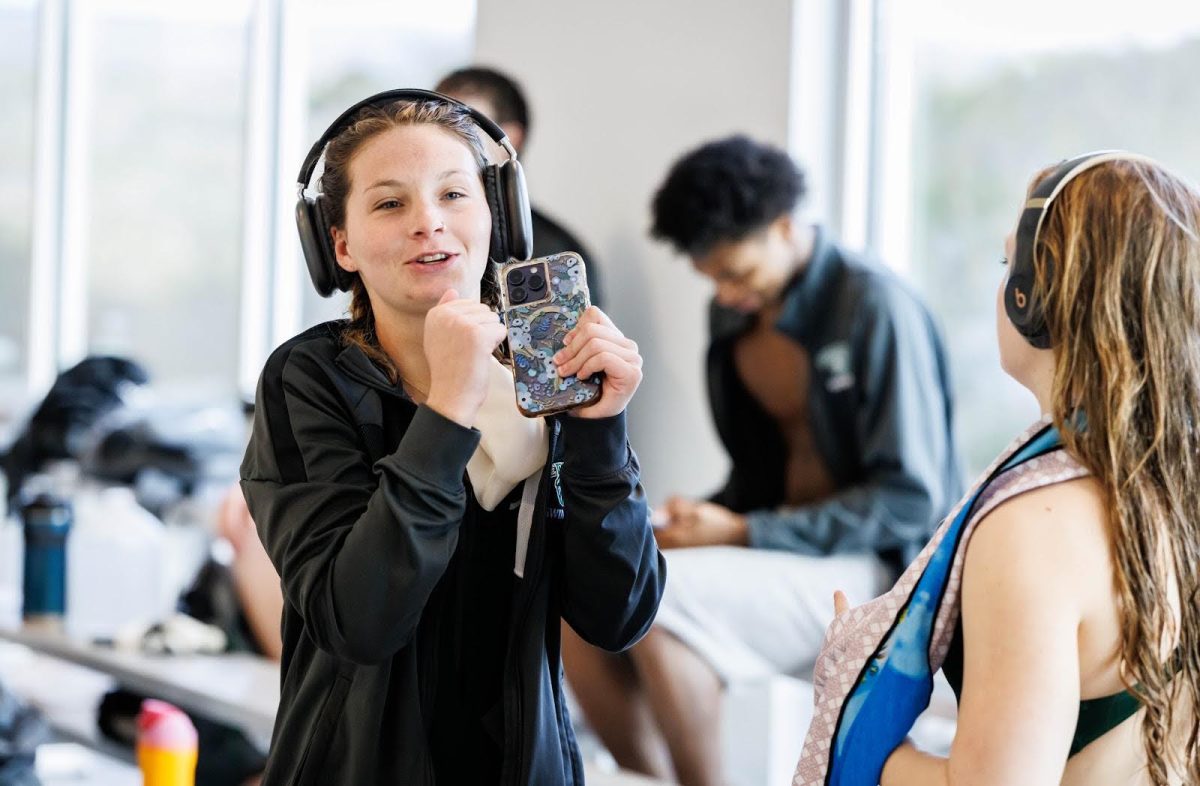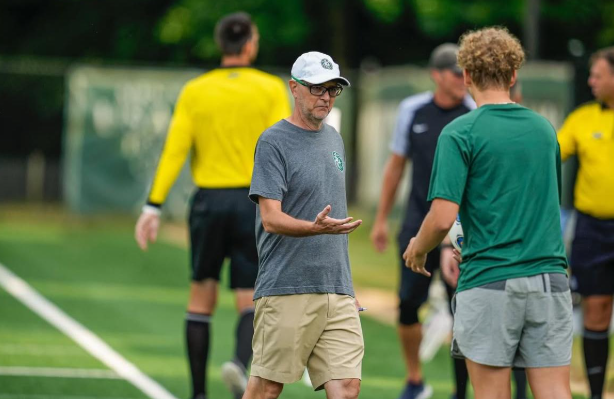For Maggie Bishop, a junior film and graphic design major at Piedmont University, the pool has been both a sanctuary and a battleground. As a competitive swimmer, Bishop faces the physical demands of her sport daily. However, beyond the lanes and training sessions, she grapples with post-traumatic stress disorder (PTSD), anxiety and obsessive-compulsive disorder (OCD).
Diagnosed with PTSD only two months ago— after initially being misdiagnosed with bipolar disorder— Bishop has dealt with anxiety and OCD since she was 12 years old. While these conditions pose significant challenges, she credits her diagnoses with giving her a sense of clarity.
“They’ve helped me figure out what I need to do to keep both my body and mind happy,” Bishop said. “It allowed me to do my own research, to learn how my brain works, and to find the right therapies that are helping me heal the parts of myself that didn’t heal properly before.”
Swimming has played a dual role in Bishop’s mental health journey. While it serves as a coping mechanism, the sport also presents challenges that test her resilience.
“PTSD hasn’t directly affected me as a swimmer, but anxiety and OCD definitely play a crucial role in how I approach my sport—something not everyone understands,” she said.
Bishop relies on strict pre-race routines to manage her anxiety. If her routine is disrupted, panic sets in. This year, an injury forced her to switch strokes, intensifying her race-day nerves. The transition has been difficult, and self-doubt sometimes creeps in.
“I worry a lot about letting my teammates down,” she admitted.
Despite these challenges, Bishop views the pool as a refuge.
“Yes, there are days when I don’t feel like getting in the water, but it’s a space where I can channel my energy, shut out the noise, and be in the moment,” she said. “In the face of anxiety and fear, it’s become a safe place for me.”
For Bishop, the biggest mental challenge—whether in or out of the pool—is dealing with unexpected changes.
“When things don’t go the way I’ve imagined or planned, that can trigger intense anxiety and sometimes panic attacks,” she said.
To manage the pressures of high-level competition, she turns to routine. Her pre-race regimen includes a specific warm-up, a curated playlist, and breathing exercises. Silence and focus are essential before stepping onto the starting block.
“I also practice visualization and try to center myself mentally by going through the race in my head,” she said.
Beyond swimming, the academic demands of college life add another layer of stress. Last-minute changes in class schedules and group projects can be overwhelming. However, Bishop has found strategies to cope, including detailed planning, therapy and self-care.
“Planning ahead is everything. I keep a detailed calendar, check in with my professors, and prioritize sleep when I can,” she said. “It’s all about time management and knowing when to ask for help—whether it’s tutoring, mental health support, or just a break to reset.”
Mental health in sports is still widely misunderstood, and Bishop has encountered skepticism firsthand. “Some people don’t take it seriously or assume that because I’m a strong athlete, I must have everything under control,” she said. “There’s still this idea that mental health is weakness in sports, and it’s just not true.”
She has learned to advocate for herself, speaking up when she needs a break and communicating openly with her coaches. She believes that mental health should be treated with the same urgency as physical injuries.
“There’s been progress, but we’re not there yet,” she said. “We need more open conversations, more accessible mental health resources, and more understanding from coaches and athletic departments.”
For Bishop, success isn’t just about podium finishes or personal records.
“Success, for me, is showing up even when it’s hard,” she said. “It’s progress, not perfection. It’s being kind to myself, learning from failure, and staying true to who I am both in and out of the pool.”
She hopes her story will encourage other athletes struggling with mental health to seek support.
“You’re not alone, even if it feels like it,” she said. “Don’t be afraid to ask for help. Therapy isn’t weakness—it’s a tool. Your mental health matters just as much as your physical health.”
Despite the misconceptions surrounding mental health in athletics, Bishop remains determined to break the stigma.
“People think we’ve got it all together, or that being physically strong means we’re mentally unbreakable,” she said. “But mental illness doesn’t care how fit you are. You can be winning medals and still be struggling internally. That’s why compassion and understanding are so important.”
As Bishop continues to navigate her journey as a student-athlete, she remains a testament to resilience—both in the pool and beyond.













